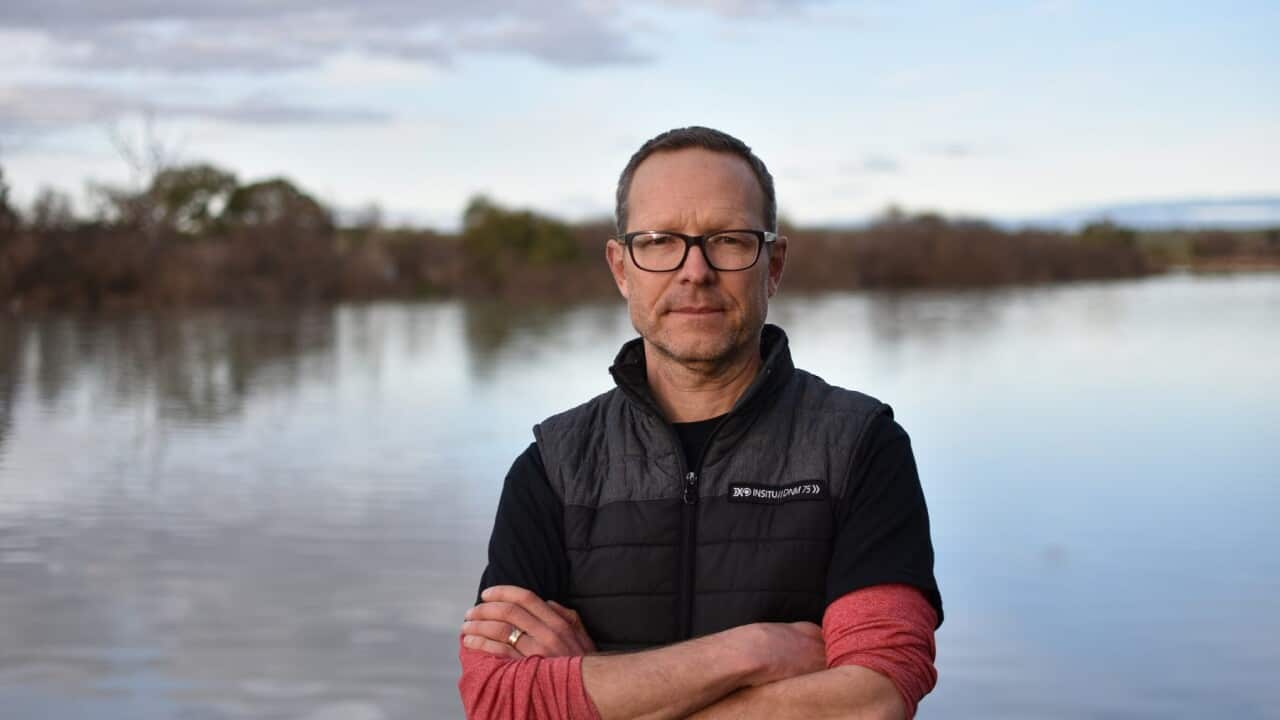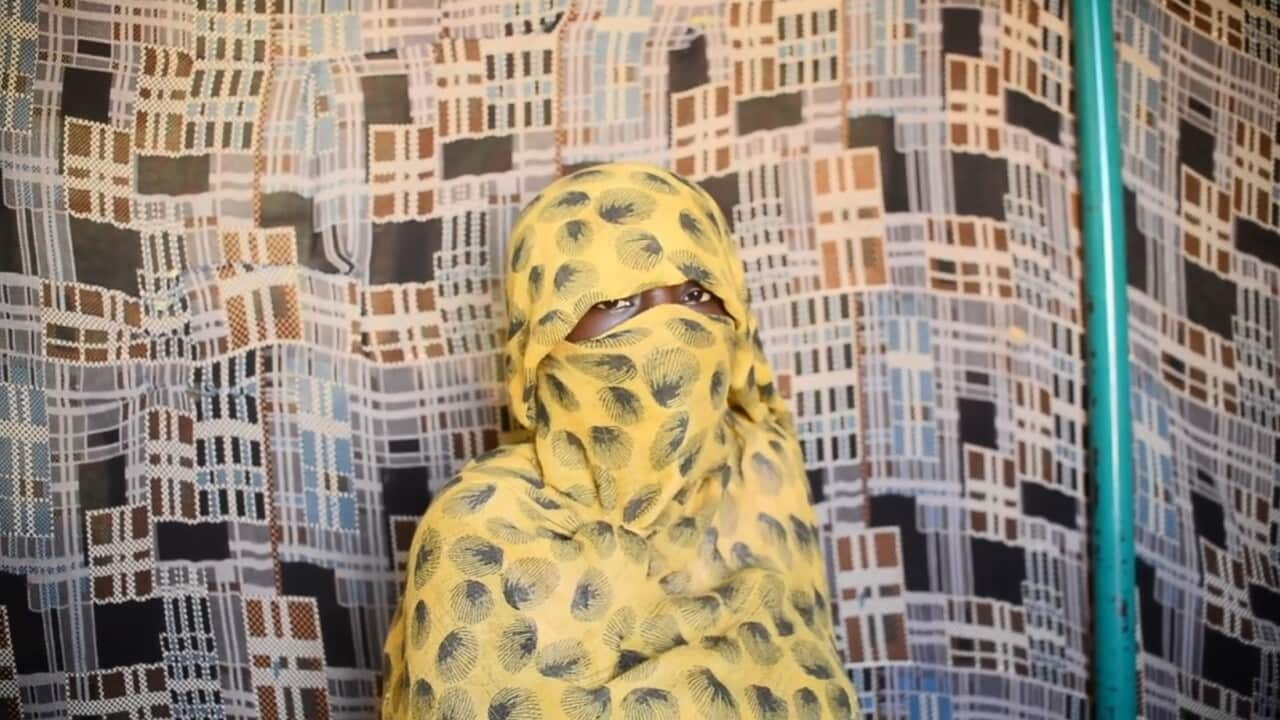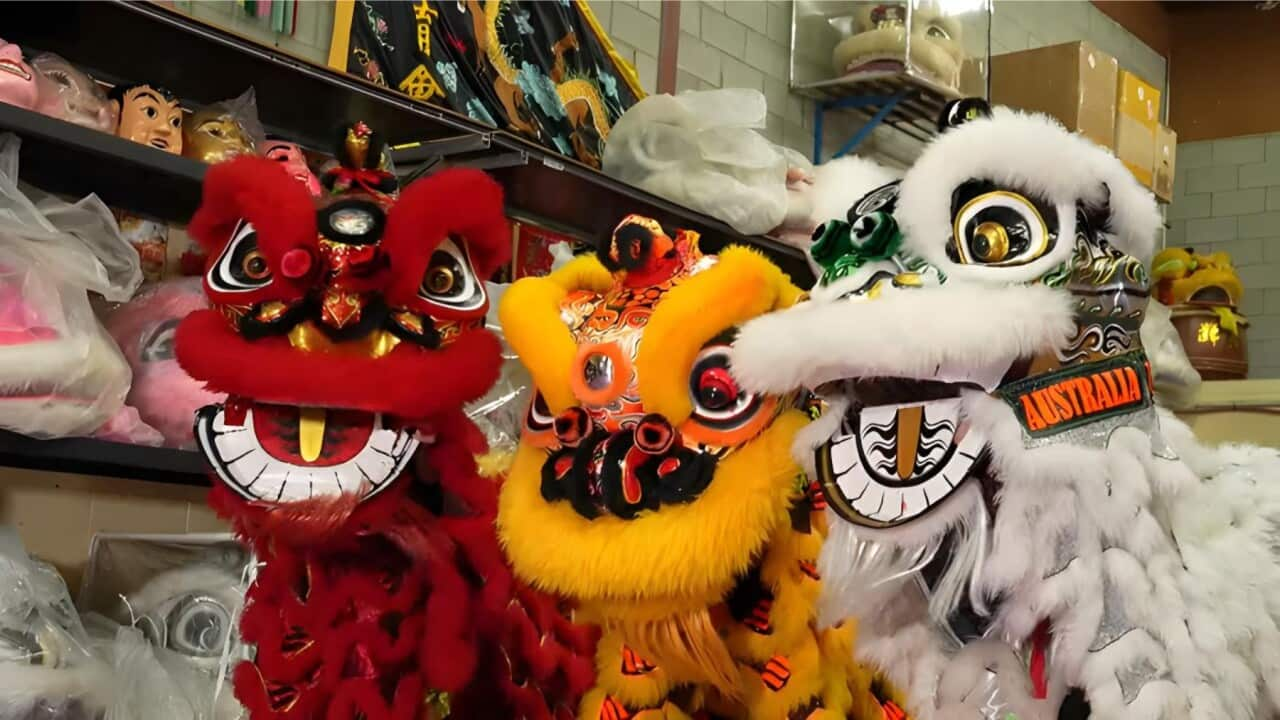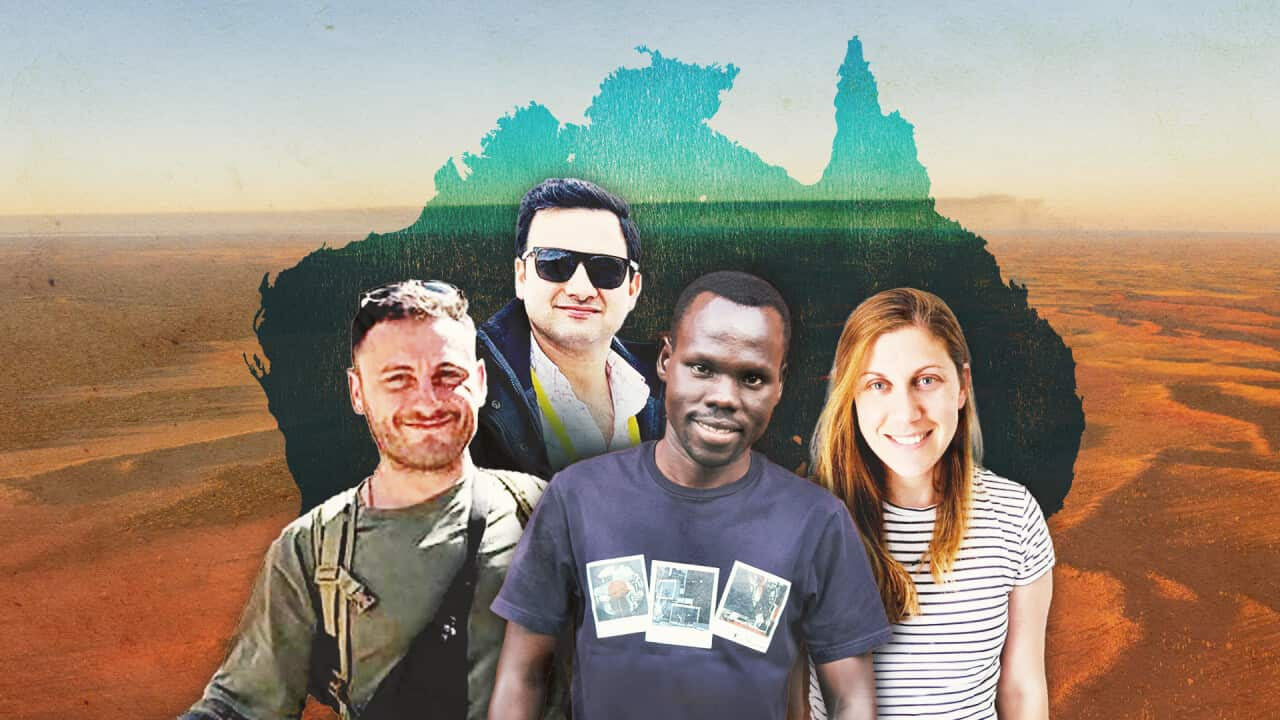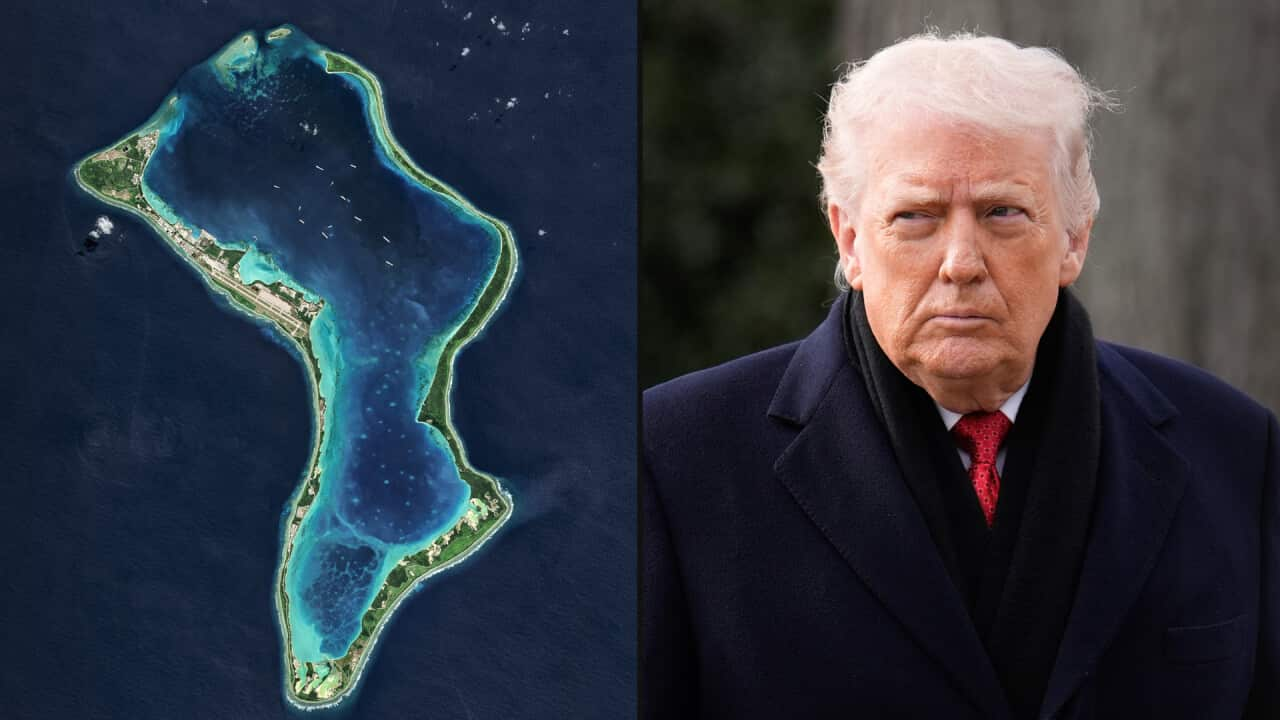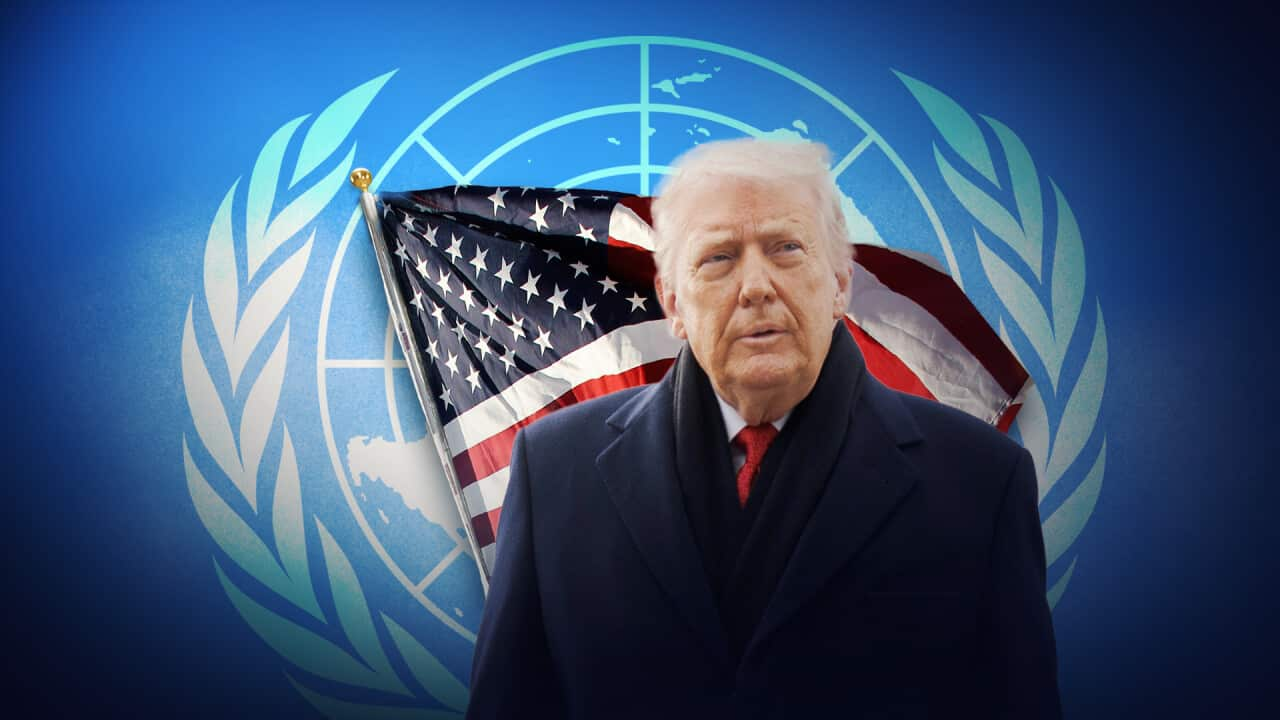Listen to Australian and world news, and follow trending topics with SBS News Podcasts.
TRANSCRIPT:
A recording studio is a world away from the refugee camp where Fiston Baraka grew up - but the memories remain vivid and live on in his music.
"Kumbuka means remember. It's me looking back at all of times where people were telling me ‘Hey, you need to stop music, you're just wasting your time’. And so in the song there's a line that says (speaks Swahili) so that translates to ‘remember when they said we wouldn’t go forward or wouldn't make it.' "
‘Making it’ is something the 25-year-old is incredibly proud of.
The rising hip-hop star from Geelong is among Victoria’s hottest music acts.
He even performed at the Australian Open this year.
"The Australian Open, yeah that was crazy. I think there is no way to describe it. It kind of made me feel seen, but at the same time it made me accept that the work that I'm actually putting in isn't just going to waste."
Fiston Baraka, known to fans as ‘Baraka the Kid’, sings in English and Swahili, and his music is finding an audience worldwide.
"My biggest following is Nigeria, South Africa and the United States. Australia sits in number four. I think that's because hip hop and certain other music hasn't really blown up as much in Australia."
Fiston Baraka grew up in a refugee camp in Zambia after his family fled the Democratic Republic of Congo.
As a child, his life changed when his parents bought land and began growing crops.
"Me and my older brother got pulled out of school before my sister was even of an age to go to school yet. And then we started working on the farm alongside our cousins. My parents just decided that the farm was more of a focus because that's what was actually bringing in income."
It set back his education, so arriving in Australia in 2010 and speaking little English, he found learning a major challenge.
"The reading part was hard because I couldn't write and I couldn't read the words either. The quickest way that I learned was by watching cartoons on television."
Despite barriers, Fiston Baraka went on to finish high school and tertiary qualifications, then spent six years working in construction.
He now runs his own business, and explores his refugee journey through song.
"In each song that I make, it always has to be a story. It's either something that I've experienced or something that someone close to me has experienced and I'll put that into the music. People are able to go like, oh wait, I've been through that too. And so they connect with that."
His success is due, in part, to meeting music mentor Joel Ma - also known as Joelistics – an Australian producer, multi-instrumentalist, and former member of Melbourne-based Australian hip hop group TZU.
"When Fiston and I first met, h e was really open to exploring that legacy and that family story. A lot of our conversation was just about life. It was about his family's story and the kind of magnificent but also mundane story of people coming from overseas and arriving in somewhere like Geelong, in suburban Geelong, and how much of a shock, cultural shock that would've been for Fiston in his family."
But would singing in Swahili help or hinder his music career?
"It wasn't hard to kind of convince him to sing in Swahili, which he was … we talked a little bit about ‘will that alienate an Australian listening public’? And I remember our conversation did sort of get to a point which was like the world, it's bigger than Geelong, it's bigger than Melbourne, it's bigger than Australia. You can have an audience that extends to parts of Africa and America and Canada and the UK because this story is, although it's unique to you, it's universal in so many ways."
It’s a strategy that’s paid off for artist and mentor Joel Ma.
"I get a huge rush of pride when I see someone like Fiston making their way in the world and having an impact and finding his audience. That's … that’s amazing."
Mentoring was part of an artist development project called Grid series, which started in 2013.
Co-founder Ariel Blum says it aims to break down barriers.
"GRID is actually an acronym: it stands for Grass Roots Indie Development. Grid Series' main mission is to really be able to bring resources, access, and opportunities to communities that typically come from low socioeconomic backgrounds. And we find those in this country typically living in the outer suburbs and regional areas."
The free six-month program, supported by Creative Victoria, includes studio time with a producer, live performances and even a video.
Ariel Blum says it aims to level the creative playing field.
"A lot of challenges for people that don't necessarily grow up with either the economic means or the social networks to access people like decision makers, taste makers, and also allies who will just kind of give them a leg up."
However, Blum says a lot also depends on an artist’s motivation.
"Fiston is like a meteorite, a fireball of incredible energy - incredibly personable, incredibly talented, and insanely charismatic. And when you're around Fiston, you're just excited."
GRID series runs in three states and aims to brings more diversity into the Australian music scene, says mentor Joel Ma.
"I've always come from a part of the Australian music industry that is about telling stories and representing an Australia which is diverse. I've always found Grid as this hotbed of stories of an Australia that I recognize and probably it's not as bad as it used to be, but the Australian music industry felt very white, very male dominated, very rock oriented. And so Grid had a much more open-minded and diverse group of artists, genres."
Australia’s recorded music industry is now valued at more than $8 billion annually, according to a recent Creative Australia report.
That creates new opportunities, although Fiston Baraka says competition remains fierce.
"It's a lot more challenging for new artists to break through into the mega-stream - not just that there's so many artists, but the platforms have made it much harder for newer artists to have a breakthrough as well."
After quitting a fulltime job in construction to chase his dream, Fiston Baraka says success is sweet.
"I'm very happy to be where I am and just very proud to have came so far. I didn't think of music as being anything than just like a hobby when I first started, but now it's kind of become of a passion and it's become something I can actually make a career out of."
But his focus remains on connecting with his fans.
"Little messages that people send to me, they might be little as in text, but they're big in heart because people are able to open up just by hearing of my words."

